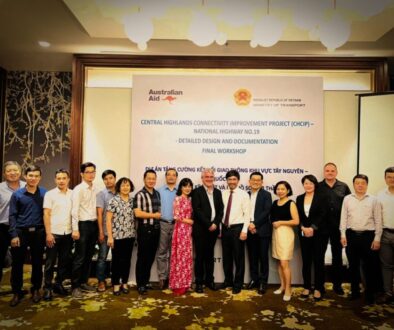Afforestation and forest protection: a vehicle for sustainable development
Why are Forests so Important?
If we had all known that forests are home to 80% of the world’s terrestrial biodiversity, provide livelihood for nearly 300 million people (including 60 million indigenous people), and understood both the benefits we gain from them and the real threats when living without them, we would have done things differently.
Humans depend on forest for our survival, from the air we breathe to the wood we use. Forests supply water, provide livelihoods, mitigate climate change, prevent soil erosion, and play an essential role in sustainable food production. When forests are taken away, it is not just the trees that go, but the entire ecosystem that starts to disintegrate, with direct consequences for us all.
And yet we are losing them! Deforestation and forest degradation continues at alarming rates!
By 2020 FAO (Food and Agriculture Organisation) data showed that over the preceding decade, the net loss in forest globally was 4.7 million hectares per year. Deforestation rates were even higher, with a discouraging 10 million hectares of forest cut down each year. Deforestation and forest degradation are considered as the two biggest threats to forests worldwide. Direct causes of deforestation are mainly agriculture expansion, wood logging (including harvesting for domestic fuel or charcoal), and for the construction of new infrastructure such as traffic routes, urban areas, dams and hydroelectric projects.
Deforestation in Vietnam
After a huge drop in forest cover from 43% to 27% of land area between 1943 and 1990, the government of Vietnam has taken successively stronger measures and cooperative actions to stabilize forest loss. As a result of these efforts, the deforestation area was reduced by 70% between 2011 and 2015, as compared to 2005 to 2010, and forest coverage regained terrain, reaching 42% of national territory by the end of 2020.
Most recently, the government approved a plan to plant one billion trees nationwide by the end of 2025. This demonstrates great ambition in protecting and restoring forests, supporting the long-term sustainable development plan of the country.
In compliance with the Government of Vietnam’s strategic development plan and aligning with the comprehensive objectives of the Program, Aus4Transport has been working on the activity “Preparation of Replacement Afforestation Plan – Public Awareness Campaign on Forest Protection” for the Northern Mountain Provinces Transport Connectivity Project. This activity aims to mitigate the impacts on forest resources associated with the project implementation by providing a detailed plan to compensate the affected forestry resources through reafforestation and compensatory tree planting within the project area, and to upskill Vietnamese transport professionals to recognise the importance of the natural environment and to mainstream environmental awareness and forest protection in future transport infrastructure projects.
Since road travel is still the predominant means of transportation in Vietnam, the road network plays a vital role for social and economic growth, poverty alleviation and reducing inequality and access gaps to health services, education in rural or inaccessible areas.
However, studies show that road construction is one of the major reasons behind the conversion of the natural ecosystem. Whilst it is undeniable that on the positive side, roads provide opportunities for mobility and transport of people and goods, on the negative side, they also cause adverse impacts on natural resources and biodiversity. One of the main problems arising in road construction and improvement, especially in mountainous areas, is the loss of trees and other vegetation which will cause, over the long-term, climate change, soil deterioration, fewer crops, flooding, landslides, increased greenhouse gases in the atmosphere, and social and cultural challenges for indigenous people. Construction and rehabilitation of new roads is actually considered as an established driver of forest degradation and deforestation.
According to the International Union for Conservation of Nature’s definition, deforestation happens when forests are transformed to non-forest uses. Forest degradation appears when forest ecosystems lose their capacity to provide important goods and services to people and nature
Vietnam ranks the 16th in the world in terms of biodiversity with many types of ecosystems and genetic sources and is now the only country in the Mekong region to have reported a continuous increase in forest cover over the last three decades. However, this diversity is threatened because of unsustainable and poorly managed exploitation, and a slow afforestation process contrasting with the rapid economic and population growth and urbanization.
Statistics provided by the General Department of Forestry (MARD) indicated that over just 5 years (2012-2017), the natural forest area lost due to forest use purpose change in approved projects accounted for 89% of the total reduced forest area; the rest is due to illegal deforestation, causing 11% loss.
AUS4TRANSPORT’S “Replacement Afforestation Plan (RAP) and Public Awareness Campaign on Forest Protection (PACOFP)”
Aus4Transport, an AUD30 million Australian grant investment program, supporting the development of Vietnam’s transport sector through funding and technical assistance, is not only addressing the engineering aspects of transport infrastructure, but also focusing on transport-related environmental and social safeguarding.
Being aware of all the potential ecological threats expanding transport infrastructure can have on natural resource and biodiversity, Aus4Transport has proposed the activity “Replacement Afforestation Plan (RAP) and Public Awareness Campaign on Forest Protection (PACOFP)” to complement the Detailed Design and Documentation of the Northern Mountain Provinces Transport Activity, addressing the forestry-related issues caused by the implementation of the Project.
As a USD245 million project, in collaboration with the Asian Development Bank (ADB) and the Ministry of Transport (MOT), the NMPTCP will upgrade two national highways and two provincial roads with approximately 199km in length, connecting Lai Chau, Lao Cai and Yen Bai provinces to the GMS economic corridor.
According to Global Forest Watch, the three provinces of Lao Cai, Lai Chau, Yen Bai have significant natural forests, accounting for about 50-60% of land area. However, over the last few years, there has been an alarming decrease in the number of trees, especially in Lao Cai and Lai Chau. With an estimated 160,599 hectares of converted forestry being affected by the construction, including production forest, protection forest and special use forest, it is necessary to design a separate Replacement Afforestation Plan (RAP) for each province and ensure their implementation prior to and during the Project works.
Afforestation refers to the process of sowing seeds or planting trees in an area that does not have trees to create a forest. It is the conversion of bare or cultivated land into forest. The main goals of afforestation are to serve as a method to reduce atmospheric CO2, to improve soil quality, and to either avoid or reverse desertification. The forests created through afforestation also provide a habitat to local wildlife, create windbreaks, support soil health, and may also help improve water quality.
This proposed activity is designed to complement the Project engineering design, also provided by Aus4Transport, by ensuring compliance with GOV regulations and ADB requirements on environmental impact and management mitigating the environmental risks associated within the Project. The EIA on forestry related issues will be reviewed and updated based on the assessment of affected forest area in each province, providing inputs to the Detailed Designed and Documentation to minimise potential impacts on forestry assets. It will also improve and enhance the capacity of transport officers and related stakeholders to effectively develop and implement RAPs in future road investments and to ensure that future transport projects address impacts on forest resources and afforestation adequately.
The activity will contribute to achieving the overall Project impact of accelerating the economic, sociocultural, and environmental development in the Northern Mountain Provinces through the delivery of environmentally sensitive and sustainable roads. This is also aligned with long term vision in the partnership between the Australian government and the Government of Vietnam toward an improved economic growth, poverty reduction and equality in all aspects of life. The RAP-PACOFP activity will upskill Vietnamese transport professionals, contributing to reach the goals set in the latest government master plan of the country’s road network development. For the period 2021-2030, with a vision to 2050, Vietnam aims to have more than 9,000km of expressways, hoping to complete construction of about 5,000km of those by 2030. These ambitious targets show the Government’s commitment to supplying an adequate level of supporting infrastructure to keep economic growth humming along.




